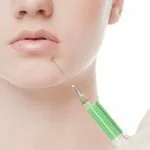Botox may increase need for Effexor
Botox injections may increase the risk for depression a new study indicated.
Botox injections may increase the risk for depression, a new study indicated. Researchers at Cardiff University in the U.K. reported their findings in a recently published paper. The study focused on several types of Botox injections and their possible connections to depression, and found that injections to eliminate crows' feet led to an increase in depressive symptoms. University doctors noted that the inability of Botox patients to smile may be the reason for the onset of depression. "The new finding being reported today concerns the impact of treatments for crows' feet. The muscles around the eyes are used when forming a real smile and so it was predicted that treatment of the muscles that cause these will reduce the strength of a smile," said Michael Lewis Ph.D. A higher chance for depression is not the only risk associated with Botox treatments. The Mayo Clinic says that eyelid droop, dry eyes and crooked smiles are also side effects of the cosmetic injections. Although rare, the source said that more serious health issues can arise from the treatment because of the botulinum toxin that is the active agent in Botox injections. If patients experience muscle weakening in the hours or weeks after treatment, they should contact a doctor immediately. Also, problems relating to vision, speaking and breathing could be signs of botulism poisoning, in which case, immediate medical treatment should be pursued. Loss of bladder control is also a sign of accidental poisoning from Botox. Avoid Botox injections when pregnant or breastfeeding, as the Mayo Clinic notes that the injections effect on newborns is unknown. If signs of depression arise as a result of Botox surgery, Effexor can help manage the condition's symptoms. Purchase the product at a Canadian online pharmacy that offers discounted rates for consumers. |




